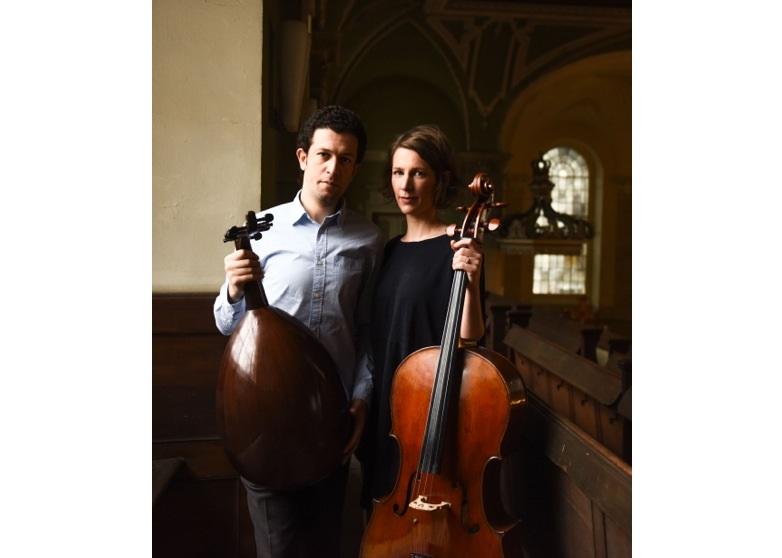
Buy Tickets
Tickets are not on sale for this event yet.
PROGRAMME
Improvisation in G minor - cello & oud
J.S.Bach, Prelude from Suite no 3 in C major, BWV 1009 - cello
Kurd maqam - cello & oud
Oud solo
Nawa Ather maqam - cello & oud
Sada (Echo) - cello & oud
J.S. Bach, Prelude from Suite no 2 in D minor, BWV 1008 - cello
Oud solo
Hijaz - cello & oud
Maria Magdalena Wiesmaier was born in Augsburg, Germany and studied cello at the Leopold Mozart Konservatorium, Augsburg, the Franz Liszt Academy, Weimar and in London with Christopher Bunting and Raphael Wallfisch. She broadcasts and performs as a soloist and chamber musician both in Germany and abroad, and accompanies the actor Klaus Maria Brandauer on solo tours, performing at the Vienna Burgtheater, Konzerthaus Berlin, Alte Oper Frankfurt and numerous festivals.
The oud player Nabil Hilaneh studied at Academy of Music in Damascus and while still a student was a prize-winner in Lebanon’s International Competion of the Arabic Oud. After graduation and further studies with Naseer Shamma, he performed both in Syria and elsewhere in the Middle East including festivals such as Cairo’s Arabic Oud Festival and has also taught at Cairo’s House of the Arabic Oud. Since settling in Berlin in 2014 he has performed throughout Europe.
The duo’s intense creative dialogue, the interaction of their respective classical traditions, the acoustics of their instruments shape their extraordinary improvisations and compositions. Nabil is particularly inspired by the oud master Munir Bashir (1930 - 1997) whose meditative, intense distillation of the Arabic tradition makes subtle use of silence. Maria embraces the Western tradition from the Baroque, with its culture of variation and ornamentation reminiscent of Arabic music, to contemporary composers such as György Kurtag (1927-). Together, Maria and Nabil are moving from the maqamat, the Arabic melodic modes, towards their own music – a music that speaks to our time.
2 hours